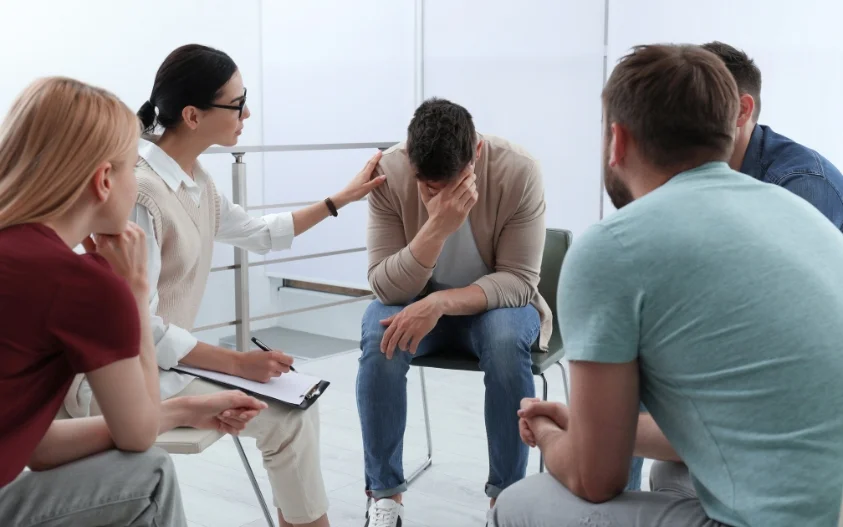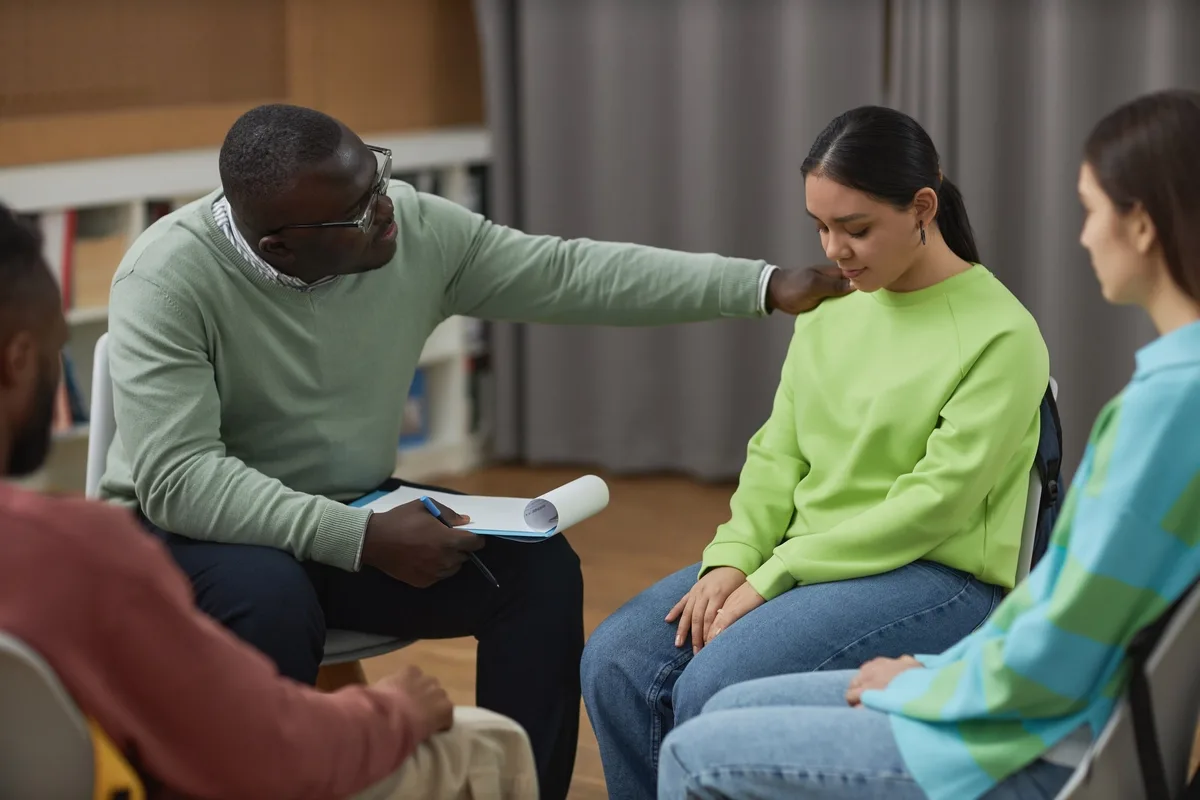24/7 Helpline:
(866) 899-221924/7 Helpline:
(866) 899-2219
Learn more about PTSD Treatment centers in Marshall County

Other Insurance Options

Coventry Health Care

Access to Recovery (ATR) Voucher

Amerigroup

Evernorth

Optima

United Health Care

Group Health Incorporated

Ambetter

Holman Group

Anthem

American Behavioral

Cigna

AllWell

BHS | Behavioral Health Systems

Multiplan

Medical Mutual of Ohio

Health Choice

UnitedHealth Group

Lucent

Regence














AA – Alcoholics Anonymous
AA – Alcoholics Anonymous is a private rehab located in Gilbertsville, Kentucky. AA – Alcoholics Ano...






































